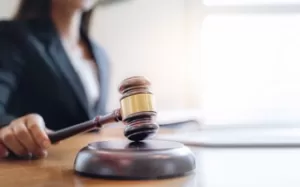The COVID-19 crisis has changed everything in our lives for the time being: how we work, how we learn, how we engage with others. The virus has also brought with it a great deal of fear for people, not only about their physical health, but also for their financial well-being. Countless layoffs, economic instability, and an uncertain future have all combined to make this a very troubling time for everyone. Some of the people most negatively affected by the coronavirus outbreak are tenants. Many have seen their finances dwindle in the wake of this crisis, and are concerned about how this will impact them going forward. If you are one of those individuals, this article will outline your rights and obligations during this time.
All Eviction Activity is Frozen
Per the Governor’s Executive Order No. 20-06, all eviction-related activity is currently stayed in Indiana courts. The order states as follows: “No eviction or foreclosure actions or proceedings involving residential real estate or property, whether rental or otherwise, may be initiated between the period from the date of this Executive Order until the state of emergency has terminated …” . This means that, for the time being, tenants to do not have to worry about being taken to court or being removed from their rental units.
You Still Must Pay Your Rent
Although the Governor’s order puts a freeze on all eviction activity, it also makes clear that tenants are to continue to pay their rent, as normal. The exact language of the order is as follows: “No provision contained in this Executive Order shall be construed as relieving any individual of their obligations to pay rent …”. It is extremely important that you, as a tenant, continue to pay all rent due, when it is due, to the extent that you are able to. The current emergency measures in place do not take away this responsibility from tenants. Failure to pay your rent could still lead to eviction proceedings being initiated against you after all stays have been lifted.
You Still Must Adhere to Other Obligations Under Your Lease Agreement
The Governor’s order also makes clear that tenants must continue to adhere to the other aspects of their lease agreements as well. The order, in addition to maintaining the obligation to pay rent, also makes it clear that it does not relieve tenants of their responsibility to “comply with any other obligation(s) that an individual may have under a tenancy or mortgage.” Similar to the rent provisions listed above, you as a tenant should not view this emergency as an opportunity to ignore or neglect the other obligations spelled out under your lease.
You Should Try to Negotiate With Your Landlord
It is important to understand that, during this time, you as the tenant have quite a bit of leverage. Landlords are more likely than usual to be sympathetic to the plights of their tenants, and flexible with delayed payments. Even those landlords who are not necessarily sympathetic to their clients, however, still face a challenge under the current situation, because they will likely not be able to take any action towards an eviction for at least a number of weeks. Once the Governor’s stay does finally lift, landlords will still be faced with the additional time, cost and energy of trying to evict what is likely a high number of tenants. For these reasons, you may find some room to negotiate with your landlord, and be able to persuade them that being patient with you and allowing for a reasonable amount of time to get caught up on your rent is a better option than waiting weeks and weeks to get into court and go through the whole eviction process.
Summary
If you are a tenant who is struggling economically and finding it difficult to pay your rent, know that you are not alone. Many others are in the same situation and feeling the same sense of anxiety. However, government orders have ensured that you will have some cushion and flexibility and managing the situation. Do everything you can to stay current on your rent, and if you are unable to, be diligent about notifying your landlord, and utilize your leverage to try to come to a compromise.
If you have additional questions or would like assistance with your legal matter, please get in touch.
NOTE
All legal references are made with respect to Indiana law. Please check the laws of your local jurisdiction if you live in another state.
The articles in this blog are for informational purposes only. No attorney-client relationship is established through the publication of these articles.







